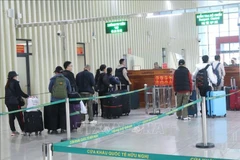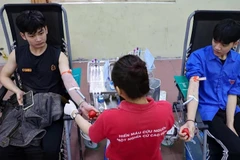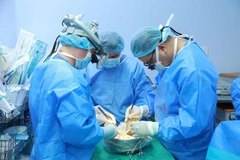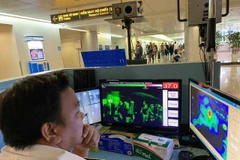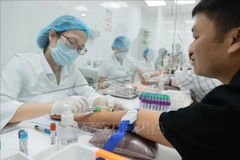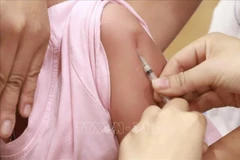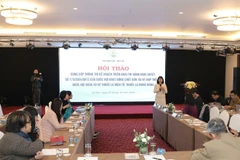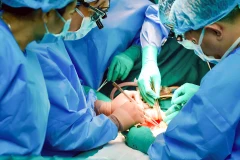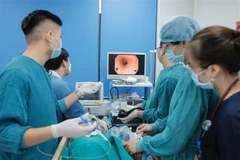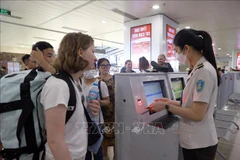 A local medical worker brings medication to a COVID-19 case under home care in Binh Dinh province (Photo: VNA)
A local medical worker brings medication to a COVID-19 case under home care in Binh Dinh province (Photo: VNA) With theCOVID-19 caseload skyrocketing throughout Vietnam, and home-based treatment becomingthe norm as the majority suffer only asymptomatic to mild cases thanks to avery high vaccination rate, many overly worried patients have resorted to wordof mouth treatments.
Somecorticosteroid drugs circulating online are dexamethasone and methylprednisolone,which should only be prescribed by doctors for COVID-19 patients in mild orserious cases since their hyperactive immunity might be causing damage totheir own organs.
Whilecorticosteroids – strong hormone-related drugs even at lower dosages withwide-ranging effects throughout the body – are a very familiar group ofanti-inflammatory drugs used in the treatment of many diseases from inhibitinginflammatory disorders and allergic reactions, these drugs should only be usedafter very careful benefit/risk considerations and only when absolutelynecessary, said Dr Nguyen Thi Lien Huong from the University of Pharmacy Hanoi.
The drugs caninhibit immune response, lessening the severity of the assaults on the bodyduring COVID-19 infection, which could lead to reduced hospitalisation time andcut mortality risks, according to clinical studies.
However, Dr Huongsaid that only a small fraction of COVID-19 patients suffer from thiscondition, and in most cases, especially among the vaccinated/boosted, theimmune system was activated at an adequate level to fight off the virus withoutcausing unintended damage.
This means ifthe corticosteroid drugs are used on unsuitable patients during COVID-19treatment, the immune system might be unduly suppressed and no longer aseffective in battling coronavirus as it should have been and causing thedisease to progress further.
Early use ofcorticosteroids – when the patient has not required oxygen masks and saturationof peripheral oxygen (SpO2) is over 95 per cent – might lead to higher severedisease and fatality rates compared to non-use, according to Dr Nguyen Huy Hoangfrom the Vietnam-Russia Hyperbaric Oxygen Centre.
This is not tomention other opportunistic infections – including from bacteria and fungi –that could take hold when the body’s protection is lowered.
Takingcorticosteroids even in the short term could also have various side effectslike hyperglycemia, glaucoma, psychosis, peptic ulcers, etc. while long-termuse can cause inhibition of the hypothalamic-pituitary-adrenal axis, acuteadrenal insufficiency, osteoporosis, and endocrine disorders./.




